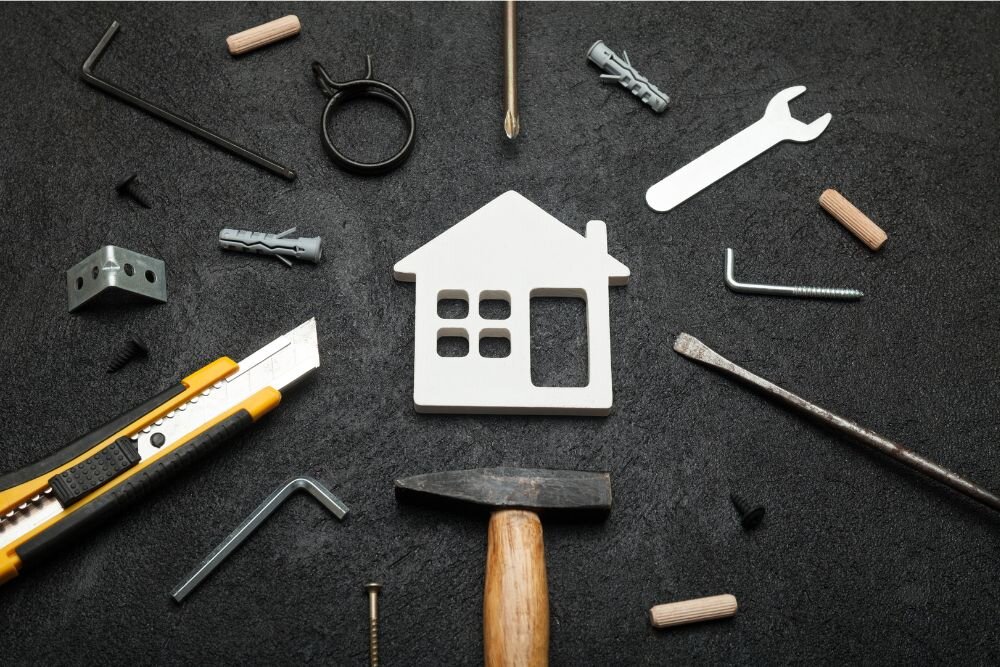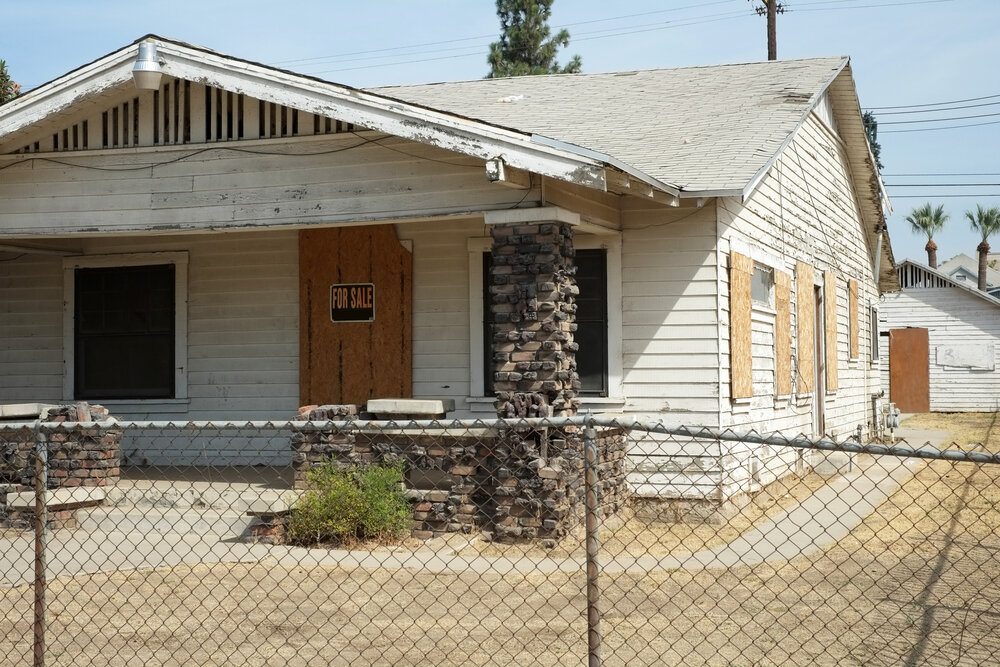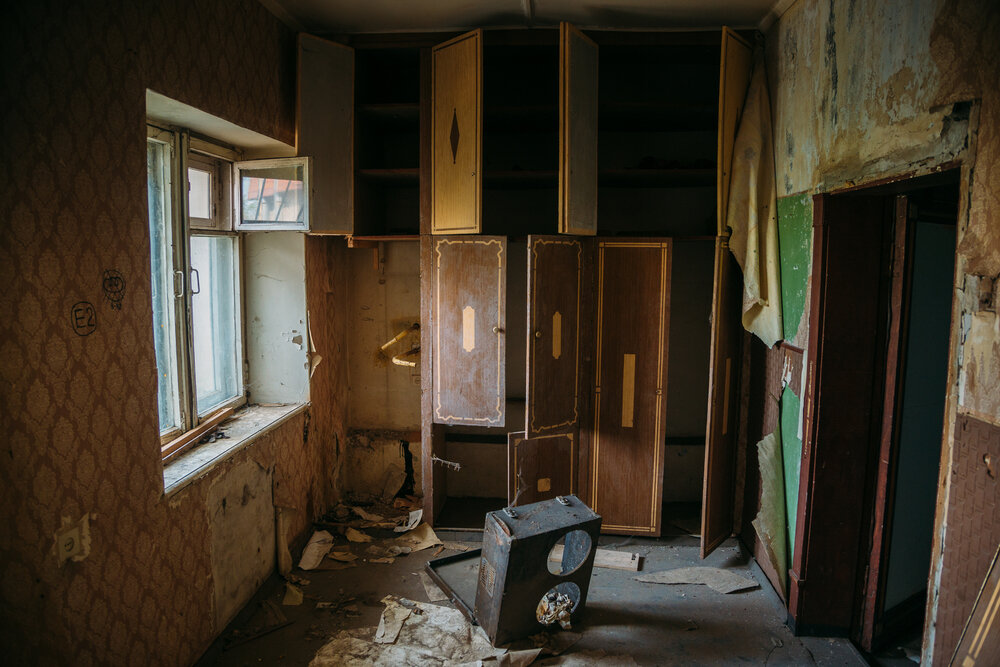Get expert advice on selling a home that needs repairs in Oregon, and maximize your return by learning about market conditions, potential buyer profiles, and effective pricing strategies with Grand House Buyers.
Understanding Oregon’s Real Estate Market for Fixer-Uppers
Current Market Conditions in Oregon: Analyzing trends in sales of homes needing repairs.

The real estate market in Oregon is unique, especially for homes that need repairs. Recent data shows that these homes often sell at lower prices. However, they can increase in value after renovations.
- Trends: There is a growing trend in the sale of fixer-uppers, indicating higher interest.
- Statistics: Fixer-uppers made up around 15% of all homes sold in Oregon last year, per a recent housing market study.
- Analysis: Buyers are attracted to these properties because they see a chance to boost the market value through renovations.
Knowing these trends helps sellers price their homes better in the market.
Buyer Demand for Fixer-Uppers: Identifying target buyer demographics and their preferences.
In Oregon, buyers looking for fixer-uppers usually belong to specific groups. Understanding these groups aids in tailoring your sales approach:
- Investors: They seek homes with a high potential return on investment (ROI).
- First-time homebuyers: They may opt for lower-priced homes despite needed repairs.
- DIY enthusiasts: They are interested in homes where they can add personal touches and improve the home’s value.
Understanding these buyer profiles can shape your marketing strategy effectively, reaching those who are keen on homes requiring attention.
Determining Your Home’s Value: Methods for assessing market value considering needed repairs.

To assess your home’s market value when repairs are needed, consider these steps:
- Comparative Market Analysis (CMA): Examine similar homes in your area that recently sold to set a baseline before adding repair costs.
- Professional Appraisal: Get a certified appraiser to estimate the market value considering current conditions.
- Home Inspection: Conduct an inspection to pinpoint structural defects and areas needing major repair, which aids in setting realistic pricing.
- Cost of Repairs: Gather quotes for necessary repairs to better understand how these affect pricing.
You can effectively negotiate with buyers and determine the value of your property by employing these techniques.
Speak with Oregon market specialists like Grand House Buyers for additional guidance or to discuss your options.
Pricing and Marketing Your Oregon Fixer-Upper
Pricing Strategies for Homes Needing Repairs

When setting the price for a fixer-upper in Oregon, think about strategies that maximize your return on investment.
- Market Analysis: Begin by looking at the current real estate market. Knowing the market value of similar homes helps in setting a good price.
- Cost Considerations: Think about how much repairs will cost and how they affect the home’s market value. This will help you choose a competitive price to recover some repair expenses.
- Impact of Repairs: Figure out which repairs will boost the home’s value the most. Focus on these when calculating potential returns.
- Pricing Strategies: Use pricing methods that show buyers how they can save. Explain how small repair investments can lead to big returns.
Correct pricing draws serious buyers and speeds up the sale. Always talk with a real estate expert for personalized advice.
Effective Marketing Techniques
In Oregon, selling a fixer-upper requires a solid marketing strategy. Here’s how to advertise your house:
- Real estate brokers: Collaborate with brokers who are skilled in fixer-upper marketing. They can assist in identifying the appropriate customers.
- High-quality Images: Highlight the potential of the house with excellent images. Even worn-out homes can look appealing with the right presentation.
- Virtual Tours: Provide virtual tours for prospective buyers to get a detailed view of the property. This lets them see past any issues.
- Targeted Advertising: Use ads aimed at those looking for investment properties or renovation projects.
- Curb Appeal: Boost the exterior’s look with small improvements. A nice outside can encourage buyers to take a closer look.
A smart marketing plan increases interest and brings in more offers.
Attracting Cash Buyers
Cash buyers and iBuyers often like fixer-uppers for quick deals. Here’s how to catch their interest:
- Understand Buyer Needs: Cash home buyers and iBuyers often want quick, easy transactions. Highlight the fast and simple cash sale process.
- Stress Faster Closing: Make sure your house is ideal for buyers who wish to close as soon as possible. Investors seeking rapid occupancy or resale are drawn to this.
- Investor Networks: Use networks to find cash buyers. These connect sellers with buyers looking for investment properties.
- Highlight Potential: Point out the property’s potential. Share data showing how smart investments can raise the property’s value a lot.
By knowing what cash buyers want, you can adjust your marketing to meet their needs and make your property more appealing for a fast sale.
Legal and Financial Aspects of Selling As-Is in Oregon
Oregon’s Disclosure Laws

Selling a property “as is” in Oregon requires being open about any problems the property might have. Oregon’s disclosure laws demand that sellers let buyers know about any known issues with the property. This helps keep things legal and builds trust with buyers. Sellers must fill out a Seller’s Property Disclosure Statement, which lists structural issues and environmental risks. If you don’t share known problems, you could face legal trouble, and this applies if you also sell a house with a lien in Eugene, Oregon.
Tax Implications
When selling a home as-is, understanding tax implications is key. If you make money from selling your property, you might owe capital gains taxes. This can affect how much profit you really take home. To get clear on what you’ll owe, it’s smart to talk to a tax professional about IRS rules that apply to your case.
Seller Financing Options
Seller financing is a different way to sell homes that benefits both buyers and sellers. Here, the seller acts like a bank and gives the buyer a mortgage. This can speed up sales and might lead to higher returns for the seller. But there’s a risk if the buyer doesn’t pay back the loan, and the seller has to handle the loan management. Knowing both the good and bad parts of seller financing can help you decide if it’s right for you.
Managing the Selling Process and Avoiding Pitfalls
Common Pitfalls: Recognizing and averting possible issues like excessive pricing, subpar presentation, and unreported problems.
Selling a house as-is can be tricky. It’s important to focus on these key areas to avoid problems:

- Overpricing: Set a fair price by researching the market. If the price is too high, buyers might stay away, making it harder to sell.
- Bad Presentation: It’s important to make a good first impression. Even if you are selling the property as-is, keep it tidy.
- Undisclosed Problems: Be truthful about any flaws you are aware of. By disclosing this information up front, you can foster trust and avoid future legal problems.
- Uncertain Expectations: Clearly define your expectations regarding offers and timelines. Negotiations go more smoothly when you have a better understanding of the market.
Negotiating Offers: Strategies for effectively negotiating with buyers who may offer lower prices.
Negotiation is key when selling your home as-is. Here are some tips:
- Understand Market Conditions: Know the current trends and what similar homes have sold for. This supports your asking price.
- Prepare for Lower Offers: Expect buyers to negotiate. Make counteroffers that reflect the property’s true value based on recent appraisals.
- Communicate Clearly: Keep communication open with buyers. Address their concerns and explain why your price is set as it is.
- Flexibility: While having a target price is important, being flexible can speed up the sale. Consider offers based on the current market and interest from buyers.
Timeline and Expectations: Realistic expectations of the selling process for fixer-uppers.
Selling a fixer-upper requires realistic planning:

- Timeline: The sale might take longer than for ready-to-move-in homes. Be prepared for this possibility.
- Investment: Buyers may view the property as an investment. Highlight the potential improvements and benefits they could gain.
- Realistic Outlook: The condition of the home will affect how fast and how many offers you receive. Adjust your expectations to match this reality.
- Situational Awareness: Be upfront with purchasers regarding the condition of the property. They ought to be aware of any maintenance or upgrades that may be required after purchase.
By focusing on these areas, you can handle the selling process effectively, ensuring a smooth transaction.
Frequently Asked Questions (FAQs) and Next Steps
Comprehensive FAQ Section
When selling a house “as is,” many questions can come up. Here are some common ones that sellers often ask.
1. What does selling a house “as is” involve?
Selling a home “as is” entails leaving it unaltered and without any renovations or repairs. Investors and those looking to renovate may find this appealing.
2. How should I price my home when selling “as is”?
To price a home “as is,” you need to understand its current market value, its condition, and what similar homes in the area have sold for. It’s a good idea to talk to a real estate expert to set a price that reflects your home’s true value.
3. Do I need to tell potential buyers about issues with my home?
Yes, you must disclose major problems or defects you know about. Being honest is important as it influences the sale and any legal obligations.
4. Are home inspections needed for “as is” sales?
Home inspections are not required, but they can help buyers learn about the home’s condition. Some buyers might request an inspection before making a cash offer or deciding to purchase.
5. How can I attract cash offers?
To get cash offers, focus on features that appeal to investors, like the location and size of the home or its potential return on investment. Pricing it competitively and marketing the home well also helps attract cash buyers.
6. Who usually buys “as is” properties?
Buyers such as investors, flippers, and those looking for a good deal are often interested in “as is” properties. They usually have the skills and funds to handle repairs and upgrades.
What are the options for selling a home needing repairs in Oregon?

You can sell your home “as is” to real estate investors or cash home buyers who focus on homes that need repairs. This can save you time and money because you won’t have to handle repair costs.
How can I attract buyers for a fixer-upper in Oregon?
Highlight the property’s potential, its good location, and recent improvements. Providing a detailed home inspection report can reassure buyers about the home’s current state.
What types of repairs should I focus on before listing my property?
Concentrate on necessary repairs like fixing structural problems, leaky roofs, and faulty HVAC systems. Minor upgrades such as painting and landscaping can also help increase curb appeal.
Is it possible to sell a house that needs major repairs quickly?
Yes, selling to cash buyers or iBuyers can speed up the process. They often prioritize quick transactions over major repairs.
Should I disclose all defects in the home before selling?
Absolutely, being open about the home’s condition is important. Full disclosure protects you legally and helps set realistic expectations for buyers.
How does the Oregon housing market affect selling a distressed property?

The demand in the Oregon housing market can impact the sale price and timing. In a high-demand market, even homes needing repairs might get competitive offers.
What should I consider when pricing a fixer-upper?
Consider how much repair is needed, market demand, and what similar distressed properties are selling for in your area. A realistic price can attract more interest.
Are there advantages to selling to an investor?
Yes, investors often pay in cash and close deals quickly. They are experienced in handling properties needing repairs, which can make the process easier for you.
Key Insights
- We focus on selling homes that need repairs in Oregon, helping you easily buy or sell these properties.
- Purchasing a home in Oregon can be a wise financial decision, particularly if you want to repair homes there.
- Houses in Oregon needing repairs offer unique chances for buyers to invest in distressed properties.
- Look for homes for sale in Oregon that need repairs and consider the potential of fixer-uppers.
- Think about selling a house that needs repairs in Oregon to cash home buyers for a smoother sale.
- If you’re selling property in Oregon, be mindful of how structural issues can affect the home’s value.
- Real estate investors often look for Oregon homes that need repairs for added value opportunities.
- We guide you on the costs involved in fixing a home, from minor repairs to big renovations.
- Our experience in the Oregon real estate market ensures that sellers meet minimum property standards.
- Selling property in Oregon means knowing local housing sales trends and what buyers expect.
- Attracting potential buyers for houses needing repairs in Oregon requires expert help and strong marketing.
- Ask about multiple offers and do a comparative market analysis when selling a home needing repairs in Oregon.
- Learn the best ways for Oregon home improvements to effectively increase your property’s appeal.
- We help homeowners in Oregon with necessary repairs, like HVAC system upgrades and landscaping.
- Understand how selling a home “as is” in Oregon might save on repair costs.
- Our platform connects you with experienced agents who know Oregon’s properties needing repairs.
FAQs
What are the benefits of buying a fixer-upper in Oregon?
Buying a fixer-upper lets you customize it and may increase the property’s value.
How do I sell my home that needs repairs in Oregon?
Assess repair costs and work with a skilled agent to find the right buyers.
Are there specific repairs that impact home value in Oregon?
Indeed, improving curb appeal and addressing structural problems can significantly raise a home’s value.
Can I sell my home in Oregon without making repairs?
Yes, selling “as is” can speed up the process, though offers may be lower than for repaired homes.
What should I consider when purchasing a property needing repairs in Oregon?
Look at repair costs, market trends, and resale value for smart decision-making.

